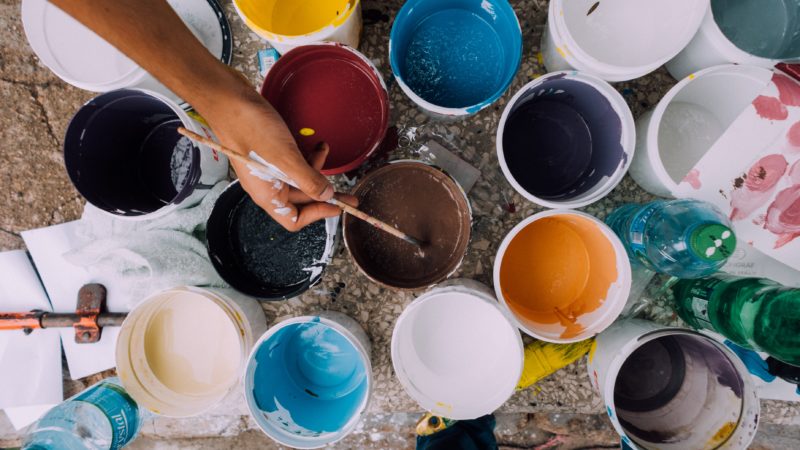
A guest post from alumna Katy Attanasi, who earned her PhD in Christian Ethics from Vanderbilt University.
In the Masterpiece Mystery series Foyle’s War, Detective Chief Superintendent Foyle solves regular crimes in an average British town during the extraordinary times of World War II. Although he would rather serve the War Office, Foyle eventually accepts that his war effort will entail fighting local crimes and bringing criminals to justice.
The tension between the high stakes of fighting Hitler and the (presumably) “lower” stakes of local law enforcement heightens when war heroes commit the crimes. But viewers see that Foyle’s steady pursuit of justice creates a community such that when the dust settles, law enforcement steadily and scrupulously investigates and holds criminals accountable. Foyle challenges us to ask: when society is in chaos, what kind of world are we creating? Does it cohere with our values?
We don’t typically think of police work as “creative,” and yet even mundane actions hold creative potential. More easily visible is the creative potential of artists, writers, and musicians whose work Toni Morrison says “is how civilizations heal in troubled times.” Cellist Yo-Yo Ma has led the way: as state governments closed schools and U.S. COVID-19 infection rates rose, Ma began recording music for social media using the hashtag #SongsOfComfort. In the following weeks, artists from Chris Martin (Coldplay) to the Indigo Girls invited fans into their living rooms for music that consoles and connects.
Teachers, visual artists, zookeepers, scientists, and ballet schools have harnessed their creativity into online offerings benefiting bored kids and overwhelmed parents. Local non-profits, school staffs, and congregations have responded creatively to their communities’ needs by distributing lunches, holding wave parades, and hosting morning prayers via Facebook Live. Such actions create our world, and—when done while upholding social distancing protocols—they foster virtues like connection, imagination, conservation, literacy, and love of neighbor through their means and their ends.
Our creative works also shape our political world. Recall the world Detective Superintendent Foyle creates through law enforcement: one governed by fairness, transparency, and accountability. As we consider this political moment, we should ask: do our political actions create a world in which we want to live?
We are all artists who work with different media. As a wife, mother, Christian, and ethicist, my parenting practices are political, and I aim to foster virtues in my children’s moral formation. I teach them that public health experts say we need to stay home—and in doing so we love our neighbors, especially those most vulnerable. We cultivate gratitude by writing thank you notes to the teachers who prepared their lessons and the bus drivers who deliver free school lunches. By their means and their ends, such political acts contribute to the creation of a world I very much want to inhabit.
Creativity, though, is not inherently good. As the 20th century demonstrated, progress can quickly devolve into horror. The past hundred years of history highlights the extreme consequences of creativity untethered from a commitment to human flourishing.
If our artists and entrepreneurs have safely fostered virtues and creativity that connects, recent protests to re-open the economy have done the opposite and put millions at risk by their methods and their goals. As they gather en masse across the country, demonstrators break social distancing protocols and argue for an end to measures put in place to flatten the curve and prevent the steep infection rates that would overwhelm our hospital systems. In my state of Kentucky, their loud chants of “Let us work!” disrupted and disrespected the governor’s daily work to present information, promote solidarity, and provide updates on new infections and deaths in our state.
Protestors cultivate arrogance when they reject the wisdom of public health officials and epidemiologists and they selfishly privilege their individual rights to gather and shout their slogans—while undermining the collective efforts of individuals who have been staying home in the hopes that a sufficiently flattened curve could send them back to school and work. Just as problematically, these protestors sustain their worldview with politicians and news sources that deliberately feed the mistrust and discord that lie close to the surface of today’s body politic.
We find we have created a world that privileges arrogance and selfishness when politicians begin advising the country to “move on” from the recommendations of scientists, and when they employ loaded language to incite fear about religious and personal liberty. In such a world, everyday people refuse to acknowledge the limits of their understanding, education, and expertise. When the average Facebook user sees herself as equal to a constitutional scholar or a public health expert, we should not be surprised that we are bereft as a society of the humility Lao Tzu calls wisdom: “The wise [person] is one who know what [s/]he does not know.”
And so we return to Foyle’s challenge: what kind of world are we creating in this historical moment? Are we engendering human flourishing or are we undermining health and wellbeing? The stakes are high, but if we can prioritize the collective good and respect the limits of our own knowledge, perhaps we can keep one another safe, and, when the dust settles, find we have created a world that can respond to these economic public health crises and cultivate moral actors who are better equipped to repair this wreckage.
 Katy Attanasi earned masters degrees from Harvard Divinity School and Harvard Graduate School of Education before receiving her PhD in Christian Ethics from Vanderbilt University. She lives in Kentucky with her husband and children.
Katy Attanasi earned masters degrees from Harvard Divinity School and Harvard Graduate School of Education before receiving her PhD in Christian Ethics from Vanderbilt University. She lives in Kentucky with her husband and children.